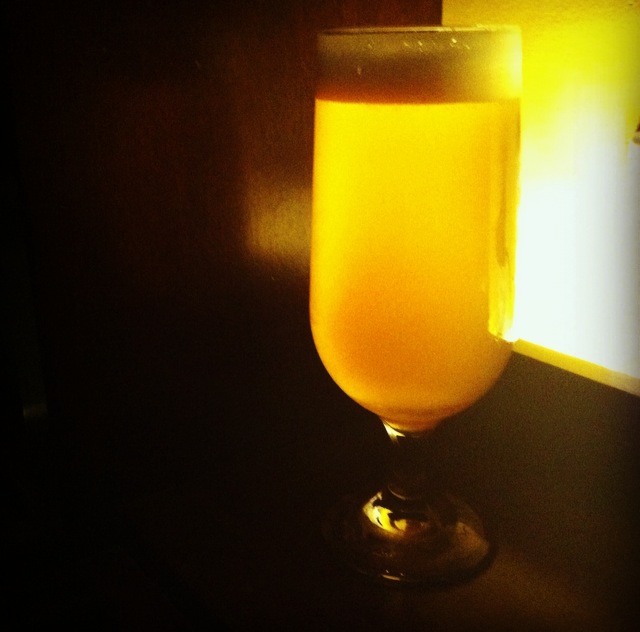Harpoon may be a large craft beer name on the national stage, but they’ve got a couple hyper-local projects going on right now. How local, you ask? Well, the first one’s based on honey sourced from bees that live a smidge over one mile away from the brewery.
If you haven’t heard about Bee Sting, Harpoon‘s latest small-batch offering, it’s likely for one of two reasons: (1) It’s been available for less than a month, and (2) it’s only being served at RumBa, inside Fort Point’s InterContinental Hotel. As for the bees in question, they live on top of the fifth floor, they’ve been there for four years, and there’s approximately 150,000 of them. Once the beer Harpoon brewed using 30 pounds of their honey is gone, it’s gone for good.
As a sucker for limited-edition drinks and a curious person to boot, I had to investigate: Why bees? Why a hotel? Why Harpoon? I was richly rewarded with booze – and trivia. For example, did you know that bees don’t shut down during the winter; they just cluster into a ball around the queen and flap their wings to keep warm? Did you also know that an apiary is essentially a bee penthouse? How about that the average bee can fly five miles?
The executive chef at Miel (the InterContinental’s brasserie) grew up in the French countryside, where I’m sure they know a dozen more fascinating facts about bees. In late 2010, he proposed that the hotel open an apiary so that he could incorporate locally sourced honey into his cuisine; once the bees survived their first Boston winter (may we all be so lucky), the rest was history.

Amidst talk of Big Beer acquisitions, seasonal creep, legal battles, and the latest cover of the New Yorker, there’s been some worry recently about craft beer getting too big for its britches. Jeremy Cowan from Schmaltz Brewing Co. sums it up nicely: “Much like when your favorite indie rock band finally gains wider appeal, there’s always a possibility of losing the special qualities that attracted the cult-like following in the first place.” From Vermont maple syrup to Duxbury Bay oysters, may Harpoon continue to stay in touch with its roots.
 American Craft Beer The Best Craft Beer, Breweries, Bars, Brewpubs, Beer Stores, And Restaurants Serving Serious Beer.
American Craft Beer The Best Craft Beer, Breweries, Bars, Brewpubs, Beer Stores, And Restaurants Serving Serious Beer.
